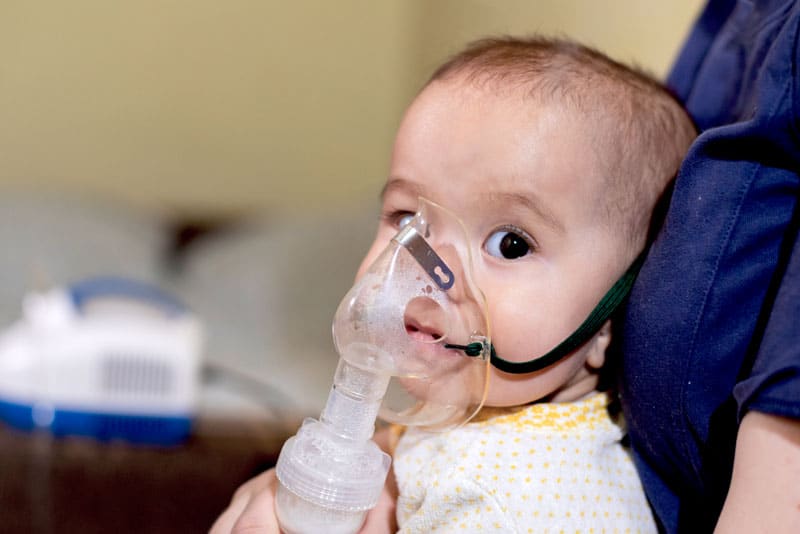RSV: What You Need to Know to Prevent Severe Illness and Spread

Learning about RSV can help you reduce the risk of infection for you and your family.
What is RSV?
Respiratory syncytial (sin-SISH-ul) virus (RSV) causes infections of the lungs and respiratory system. While RSV is most common in infants and young children, it can also infect adults.
People at higher risk of severe or sometimes life-threatening RSV infections include:
- Infants (especially premature infants) or babies who are 6 months or younger
- Children who have heart disease or chronic lung disease
- Adults or children with weakened immune systems
- Children who have neuromuscular disorders, such as muscular dystrophy
- Adults with heart or lung disease
- Older adults, especially those aged 65 and older
Why are we concerned with RSV and its spread in 2022?
Annual RSV seasons vary, but the virus is most prevalent in the U.S. from fall through spring. RSV is causing significant concern in 2022 because it has arrived earlier and hit harder than in previous years.
Unfortunately, there is currently no vaccine for RSV. Therefore, it is important to prevent RSV exposure and recognize and respond to RSV symptoms.
What are the most common symptoms of RSV?
Symptoms of RSV typically appear about 4-6 days after exposure to the virus. In mild cases, symptoms may include:
- Congested or runny nose
- Dry cough
- Low-grade fever
- Sore throat
- Sneezing
- Headache
What happens when the infection becomes more severe?
RSV infection can spread from the upper to the lower respiratory tract. Once this occurs, it can progress to pneumonia or bronchiolitis (inflammation of the small airway passages entering the lungs).
As the infection becomes more severe, additional symptoms may include:
- Wheezing (a high-pitched noise that's usually heard when exhaling)
- Rapid breathing or difficulty breathing—the person may prefer to sit up rather than lie down
- Bluish color of the skin—this is due to a lack of oxygen
Infants are most severely affected by RSV. Symptoms of RSV infection in infants may include irritability, unusual tiredness, poor appetite or feeding/drinking, and difficulty breathing. Any of these symptoms in an infant may warrant medical attention.
When should you see a doctor?
Seek immediate medical attention if your child (or anyone at risk of severe RSV infection) has difficulty breathing, a high fever, poor hydration, or a pale or bluish color to the skin, particularly around the mouth or in the nail beds.
How does RSV spread?
RSV enters the body through the eyes, nose, and mouth. It spreads through the air via respiratory droplets from an infected person.
You or your child can become infected if someone with RSV coughs or sneezes near you. The virus also passes to others through direct contact, such as shaking hands.
The virus can live for hours on surfaces such as countertops, crib rails, and toys. If you touch a contaminated object, then touch your mouth, nose, or eyes without washing your hands, you're at increased risk of exposure to the virus.
An infected person is most contagious during the first week of illness. However, infants and those with weakened immune systems can remain contagious for up to four weeks after symptoms subside.
What can you do to help prevent RSV?
Once you've had RSV, it's possible to get infected again. However, the following lifestyle habits can help reduce the risk of RSV exposure and infection for yourself and others:
- Wash your hands frequently. Teach your children the importance of handwashing.
- Avoid contact with people who have fevers or colds.
- Avoid contact with others if you are ill. Cover your mouth and nose when you cough or sneeze.
- Keep things clean. Make sure kitchen and bathroom countertops, doorknobs, and handles are clean. Discard used tissues right away.
- Don't share drinking glasses with others. Use your own glass or disposable cups when you or someone else is sick. Label each person's cup.
- Don't smoke. Babies exposed to tobacco smoke have a higher risk of getting RSV and potentially more-severe symptoms. If you do smoke, never do so inside the house or car.
- Wash toys regularly, especially when your child or a playmate is sick.
If you have concerns that you or your child may be infected with RSV, consult with your healthcare provider. Most important, do not hesitate to seek medical care if you or your child are having difficulty breathing or are experiencing symptoms that cannot be relieved at home.

